National Immunization Program turns 50 and Fiocruz prepares to expand partnership
27/09/2023
Ricardo Valverde (Fiocruz News Agency)
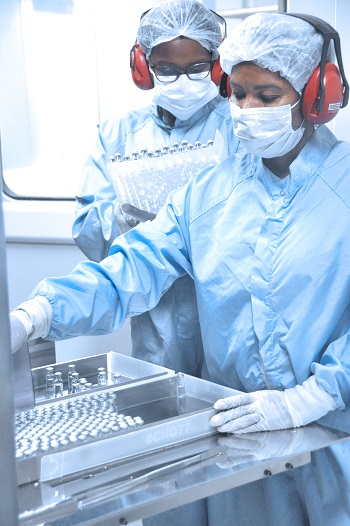 The National Immunization Program (PNI), one of the great achievements of Brazilian public health and one of the biggest initiatives of its kind in the world, turned 50 this Monday (9/18). Fiocruz, which supplies a significant portion of the vaccines used in PNI campaigns, has been an important part of this success story since the beginning of the program. The Foundation, in addition to producing immunizing agents, collaborates in the formulation of public policies in the area, in the training of professionals and with the knowledge of its specialists. For the director of the Immunobiological Technology Institute (Bio-Manguinhos/Fiocruz), Maurício Zuma, "the PNI is a guarantee of life for the population. The PNI vaccination campaigns significantly reduced the child and neonatal mortality rate and increased the life expectancy of Brazilians by offering vaccines to adults and the elderly. The program placed the country on the world map in terms of immunizations. It's a highly successful initiative with huge positive results." And in order to expand its supply of products to the PNI, Fiocruz is building a new factory.
The National Immunization Program (PNI), one of the great achievements of Brazilian public health and one of the biggest initiatives of its kind in the world, turned 50 this Monday (9/18). Fiocruz, which supplies a significant portion of the vaccines used in PNI campaigns, has been an important part of this success story since the beginning of the program. The Foundation, in addition to producing immunizing agents, collaborates in the formulation of public policies in the area, in the training of professionals and with the knowledge of its specialists. For the director of the Immunobiological Technology Institute (Bio-Manguinhos/Fiocruz), Maurício Zuma, "the PNI is a guarantee of life for the population. The PNI vaccination campaigns significantly reduced the child and neonatal mortality rate and increased the life expectancy of Brazilians by offering vaccines to adults and the elderly. The program placed the country on the world map in terms of immunizations. It's a highly successful initiative with huge positive results." And in order to expand its supply of products to the PNI, Fiocruz is building a new factory.
The president of the Foundation, Mario Moreira, says that “with the PNI and the National Self-Sufficiency Program in Immunobiologicals, the country has developed a public and national industry, headed by Fiocruz, which guarantees the sustainability and sovereignty of all vaccination strategies for the Brazilian population”. Moreira states that “as a result of the broad international recognition of the success of the PNI, Brazil has been called upon to join a global effort to make access to vaccines in the world less asymmetrical, fairer and more democratic. This call is very important and Fiocruz is engaged in this global effort, integrating a hub to produce a vaccine against COVID-19 in Latin America”. 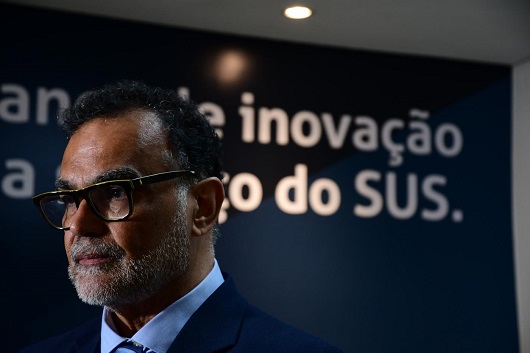
"Brazil has developed a public and national industry, headed by Fiocruz, which guarantees the sustainability and sovereignty of all vaccination strategies for the population", says Moreira (photo: Peter Ilicciev)
Maurício Zuma adds that Fiocruz has always played an important role in all Brazilian Ministry of Health (MoH) programs and was already supplying vaccines, serums, and products before the PNI. "Before, however, there was no centralized national program. And at Fiocruz, production was carried out in different laboratories and on a much smaller scale. Bio-Manguinhos was created, three years after the incorporation of the PNI, to give an industrial character to production, in addition to more effectiveness”. The Institute was created to strengthen vaccine production and meet the demands of the PNI. Later, other lines of products were included in the portfolio, such as biopharmaceuticals and diagnostic kits.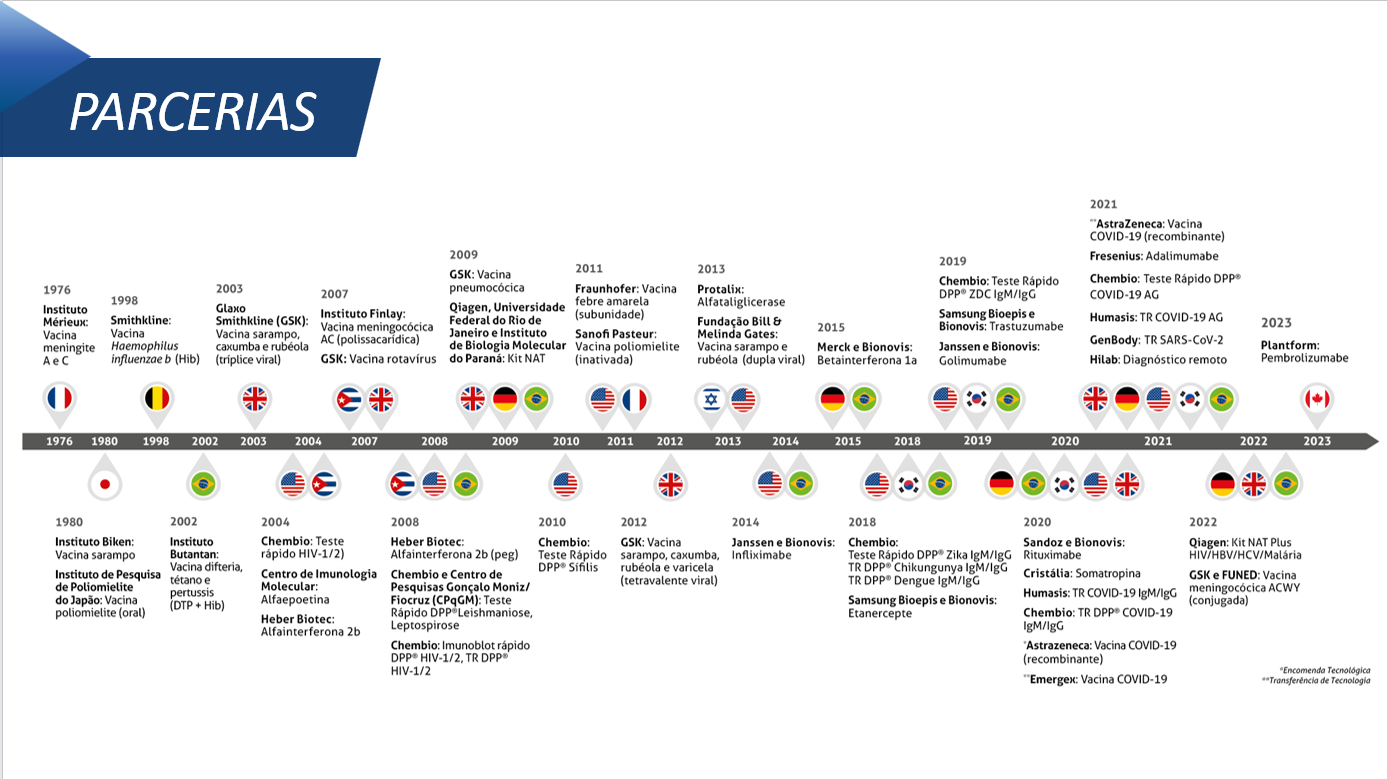
From the PNI onwards, Fiocruz began to play an increasingly growing role in the sector. “Until that moment, most of the vaccines used in the country, especially pediatric ones, were provided by a private company. At a certain point, due to advances in regulatory issues and due to the increase in production costs, the company closed its activities, as profitability was not good by its standards. This situation generated a crisis and was a watershed for the country to rethink the nature of vaccine production. If there is no vaccine for everyone on the planet today, it was even more serious at the time. And Brazil was left with no one to get immunizing agents from. There was, but in quantities that were not sufficient. This led to the decision to invest in national production, in public laboratories, and Bio-Manguinhos and the Butantan Institute stood out, among others," says Zuma.
At the MoH's meetings with representatives of all the public laboratories, issues such as which institution would deliver which vaccines and which new immunizing agents should be included in the national calendar were decided, so that there was efficiency, but without competition. And Fiocruz began to play a very important role in the PNI. “We also did team training, quality control, through INCQS [Fiocruz National Institute for Quality Control in Health], at a time when there was still no [National Health Surveillance Agency] Anvisa, we collaborated in the formulation of public policies, among other areas. We created the biggest public immunization program and Fiocruz, due to its scientific and technological diversity, played a major role," says the director of Bio-Manguinhos.
Zuma recalls that Fiocruz was fundamental in major health emergencies, such as the campaign to eradicate smallpox, for which there was a worldwide mobilization led by the WHO. "Fiocruz was a major player and participated with millions of doses. Then, during the Brazilian meningitis epidemic, in the early 1970s, the federal government signed a contract with the Mérieux Institute to produce the AC meningococcal vaccine here in Brazil. In 1976, the factory set up by the French Institute was donated to Fiocruz and operated by the newly created Bio-Manguinhos. Later there were campaigns against yellow fever, polio, measles, and in all these actions Bio-Manguinhos played a leading role. We produced more than 70 million vaccines against yellow fever in the same year”. Bio-Manguinhos evolved from a set of small laboratories for typhoid fever, cholera, meningitis, and yellow fever, designed for research, into an industrial and technological complex of immunobiologicals that today, is one of the most important in Latin America.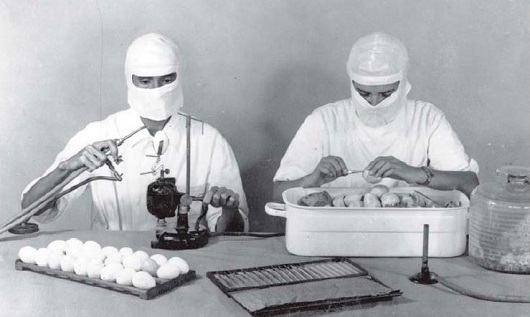
Vaccine production at Fiocruz in 1943 (photo: Bio-Manguinhos/Fiocruz)
Zuma comments that Fiocruz is fully committed to the PNI and works hard so that the program can put its policies into practice and have increasingly consistent and consolidated results. “Our goal is for the PNI to be an increasing reference for the world. Despite being named by the WHO as the most successful immunization program on the planet, there is still a lack of more recognition from other countries.”
He highlights that it is important to maintain the public nature so that the problem of the past does not return, such as the company that discontinued vaccine production in the country. "We have a commitment to the SUS (Brazilian Unified Health System), to the PNI and to the health of the population, especially in the production of those products that the market has no interest in offering."
In 2022, the Institute delivered more than 120 million doses to the PNI. And in 2021 it was more than 200 million, due to the COVID-19 pandemic. Bio-Manguinhos produces the DTP and Hib vaccines, yellow fever, Haemophilus influenzae B, meningitis A and C, 10-valent pneumococcal, COVID-19 (recombinant), inactivated poliomyelitis, oral poliomyelitis, human rotavirus, tetravalent viral, triple viral (measles, mumps, and rubella) and measles and rubella (attenuated). In addition to the PNI, another 70 countries receive vaccines produced at Fiocruz, through supplies to international organizations such as PAHO, the United Nations Children's Fund (Unicef) and the International Alliance for Vaccines and Immunization (Gavi). The most exported are yellow fever vaccines and immunizing agents against meningococcal disease. Although Bio-Manguinhos is preparing to export other vaccines, it is worth remembering that only surplus production is exported, due to the prioritization of the national market.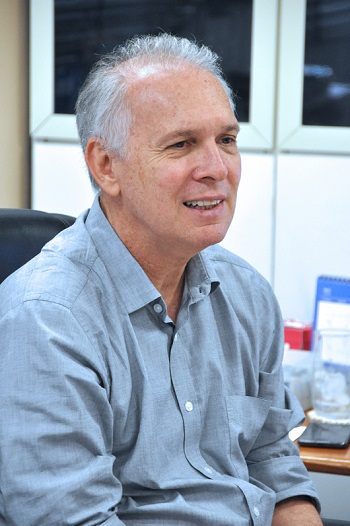
Zuma says that the next step is to work not by reaction, as in major health emergencies, but with foresight and to prepare for pandemics that may arise. "Bio-Manguinhos is taking part in global initiatives to choose targets and start developing new vaccines. The WHO will define the targets, especially viruses that may surprise. We also have discussions with Oxford University and PAHO about new vaccines."
According to the director, these institutions see great potential in Bio-Manguinhos. "And not just to supply Brazil, but the world. We can no longer have a situation where the rich countries get all the vaccines, and the poor go without. Preparing for future pandemics requires products on the shelf, with a vaccine developed at least in phase 2, with proven safety and immunogenicity to be put into production and used.”
Zuma says that new products will come. Bio-Manguinhos contributes to clinical studies, such as the one being validated on the yellow fever vaccine. “The PNI commissioned us to carry out a study on the measles vaccine during the recent increase in the number of cases in the country. These are actions and research that support the PNI's decisions. We are contributing with new diagnostic technologies to consolidate a more modern surveillance system in the MoH, which is not PNI, but contributes to the PNI”.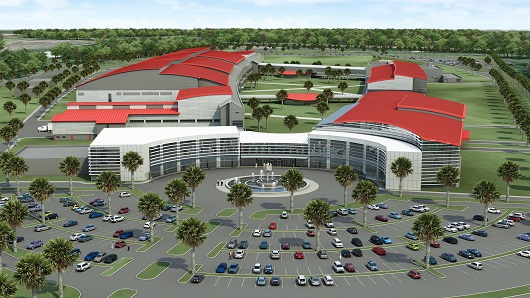
The Health Biotechnology Industrial Complex campus, at Santa Cruz, Rio de Janeiro
For these new projects, and the consequent supply of more and better products to the PNI, Bio-Manguinhos is building the Health Biotechnology Industrial Complex (Cibs) in Santa Cruz, in the west zone of Rio de Janeiro, aiming to increase production and achieve self-sufficiency in immunizing agents. "It's important for the PNI to have its high-demand vaccines available quickly, in a more economical format. With Santa Cruz, we will have a much larger capacity and we will offer the vaccines in other presentations. We will have more capacity, with more customized products, which will allow PNI more choices and better adaptation to the needs of the countryside." The development, on 580,000 square meters of land, will make it possible to quadruple the final processing capacity for vaccines and biopharmaceuticals. The new factory will also allow exports to be expanded.
Cibs will have platforms that will increase its power to provide answers, allowing it to produce mRNA vaccines, which can be developed more quickly and produced on a larger scale. Zuma says that one of the vaccines that is on Bio-Manguinhos' radar, for future production, is the vaccine against respiratory syncytial virus (RSV). "It's an extremely important product, as many children have been affected and the MoH is interested. We are also looking for other vaccines, such as those for antimicrobial resistance and Zika, as well as vaccines that we already produce and that we will start manufacturing using new technologies. We are discussing a partnership with the Butantan Institute, which would greatly strengthen the PNI. And there is, of course, great interest from PNI in the two largest producers in Latin America working together. It would be a gift to the PNI," says the Director.
Zuma emphasizes that the transfer of technology, which is at the origin of Bio-Manguinhos, and continues today, is not just copying. “We learn to innovate and develop because the access to new processes and products creates new capabilities. There is no technology transfer without innovation. Those who are providing the technology don't have the same environment as those who are receiving it; there are always differences and adaptations. Which generates innovation. In the case of the COVID-19 vaccine, our partnership with AstraZeneca proved this. When we were still discussing the transfer of the vaccine, we realized that some equipment was not available on the world market. We needed to innovate and use other equipment and we showed AstraZeneca that it was possible to do it differently, with the knowledge we already had. Formulation, for example. It was done in large containers. We used our tanks that were used for other vaccines and adapted them successfully. The presentation too. Originally it was in 10 doses. We started doing it in 5 doses and proved that it was technically and scientifically possible. We designed specific connections together with the manufacturer and AstraZeneca. It was a learning experience that gave us lessons. AstraZeneca has only worked in this way with Fiocruz and that is why it is counting on us for future partnerships, recognizing our capabilities. And all this, of course, means gains for the PNI".
Despite the successes, Zuma warns that there is a major challenge for the PNI: the drop-in vaccination rates in recent years, which raises warnings that some diseases controlled or eliminated in Brazil could return. Science denialism and fake news about vaccines, which abound on the internet, are some of the causes of this decrease in vaccination coverage, which is necessary for collective immunity. According to the Director, “resuming high vaccination coverage means avoiding deaths resulting from diseases for which vaccines already exist, as occurred in recent years with yellow fever and measles. It means optimizing hospital care by freeing up beds. It is about providing predictability to the demand for vaccines, guaranteeing the necessary supply to the PNI.” Over its five decades, the program has been responsible for the eradication of smallpox, the elimination of polio, rubella, congenital rubella syndrome and measles.
The senior scientific advisor of Bio-Manguinhos and coordinator of the project Pela Reconquista das Altas Coberturas Vacinais (For the Regaining of the High Vaccination Coverage), Akira Homma, states that “despite the achievements, or because of them, we are victims of our success, since many have forgotten or do not know what it was like not to have vaccines that prevent diseases and save lives. We're listening to the professionals who are at the forefront of this process so that we can regain these high rates and inform the population of the importance of prevention".
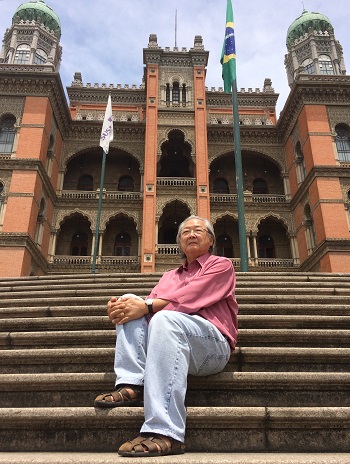 Homma, who was president of Fiocruz and director of Bio-Manguinhos, says that people need to be made aware of the need to protect themselves, their families and their communities. "With vaccination and millions of lives saved, and the average life expectancy of Brazilians has risen to 75. It was once 77 but fell due to COVID-19. Vaccines have increased people's quality of life and life expectancy, and this must always be emphasized. Every citizen must be responsible for taking this information forward."
Homma, who was president of Fiocruz and director of Bio-Manguinhos, says that people need to be made aware of the need to protect themselves, their families and their communities. "With vaccination and millions of lives saved, and the average life expectancy of Brazilians has risen to 75. It was once 77 but fell due to COVID-19. Vaccines have increased people's quality of life and life expectancy, and this must always be emphasized. Every citizen must be responsible for taking this information forward."
The advisor says that Fiocruz's relationship with the PNI has always been so close that the PNI's first vaccine storage center was located at the Foundation. And in the 1990s, Fiocruz centralized PNI purchases. "Few people know that. Fiocruz participated directly and therefore held these essential roles.”
Homma, who has been at Fiocruz since 1968, emphasizes that Fiocruz is following a mission left by its patron Oswaldo Cruz, which was to develop serums and vaccines to protect against pandemics and epidemics. "Oswaldo Cruz, at the beginning of the 20th century, made clear the importance of vaccination for disease prevention. The Federal Serotherapy Institute [the embryo of today's Fiocruz] was created to combat plague, yellow fever and smallpox in Rio de Janeiro."
Oswaldo Cruz's campaigns were the first major achievement, with mass vaccination against smallpox. As the positive results of immunization appeared, such as the reduction in transmission and the number of associated deaths, the population began to trust vaccines more. In 1903, when Oswaldo Cruz took over as General Director of Public Health, at a time when there was no Ministry of Health, created in 1953, he had to deal with two major epidemics: yellow fever and smallpox.
Homma says "Brazil is one of the few developing countries that has the scientific and technological capacity and competence, as well as the industrial and production capacity, to offer the vaccines that its population needs. A capacity that is currently at its limit, hence the construction of Cibs, to provide more security in supply to the PNI.”
Considered one of the world's leading experts on vaccines, Homma says that Brazil needs to invest much more. "We need to invest more in science, in basic research, in technology, in startups. We must develop vaccines against HIV, malaria, RSV, against enteric diseases. We need to develop new vaccines, with several antigens together, to reduce injections. These are big challenges. New technologies are emerging, such as recombinant vaccines, chimeric vaccines, and messenger RNA vaccines. We need to move forward in order to obtain better adjuvants that allow for greater protection and longer-lasting immunity, without adverse reactions. With fewer injections and more protection against more diseases. All these technologies, one day, will serve the PNI”.
The For the Regaining of the High Vaccination Coverage project has created an inter-institutional collaboration network, involving national and international players from the governmental, non-governmental and private sectors, around improving vaccination coverage. Actions are being implemented to provide strategic support to the PNI in order to reverse the downward trend in vaccination coverage in the National Vaccination Calendars – for Children, Adolescents, Adults and Elderly, Pregnant Women and Indigenous Peoples and, thus, ensure the control of vaccine-preventable diseases such as measles, polio, influenza, cervical cancer, meningitis and all others whose vaccines are available free of charge to the population at health centers.
The project is organized around three thematic axes with shared operation and specific actions: vaccination; information systems; communication and education. The initiative is coordinated by Bio-Manguinhos, in partnership with the Department of Immunization and Immuno-preventable Diseases of the Ministry of Health and the Brazilian Immunizations Society (SBIm).


